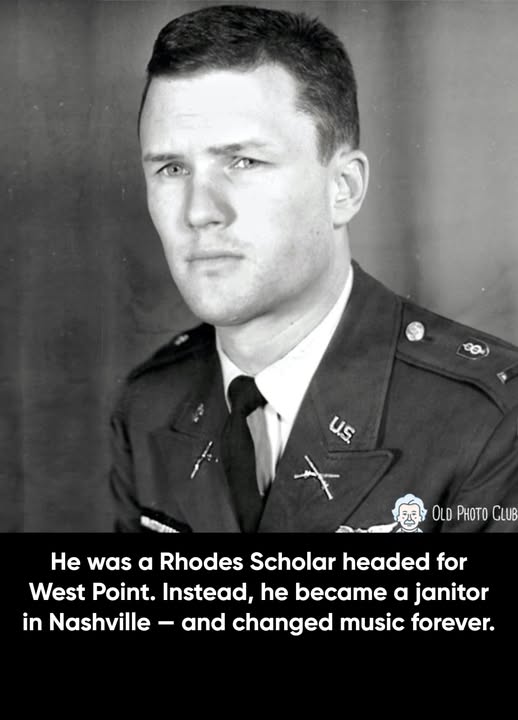
Before he wrote songs that made people cry, Kris Kristofferson had already lived three lives.
At Pomona College, he was a football star, Golden Gloves boxer, and poet. A professor saw something in him — told him to apply for the Rhodes Scholarship. He did. And he won.
At Oxford, Kris studied literature among stone halls and quiet libraries. Somewhere between Yeats and Dylan Thomas, he realized poems could live in music. Songs, he decided, were poetry that people carried in their hearts.
Back home, everyone saw a future professor, maybe even at West Point. He was offered that teaching job — the pinnacle of prestige. But he turned it down. He joined the Army instead, became a helicopter pilot, a captain, and then… walked away from it all.
He packed his duffle bag, moved to Nashville, and started sweeping floors at Columbia Recording Studios. The Rhodes Scholar became a janitor. Between shifts, he wrote songs — scribbling lines on napkins, notebooks, and dreams.
Years passed. Nothing happened. Then one day, Johnny Cash heard “Sunday Mornin’ Comin’ Down.”
And everything changed.
Janis Joplin sang “Me and Bobby McGee.”
Ray Price sang “For the Good Times.”
Sammi Smith sang “Help Me Make It Through the Night.”
Each song carried the same voice — weary, tender, honest. A voice that understood the beauty in being broken.
Soon, the janitor was standing on stage. Then, on film sets. Then, in history.
But Kris Kristofferson’s greatest masterpiece wasn’t a song.
It was the decision to walk away from what was expected — to choose meaning over safety, truth over titles, art over approval.
He could have taught literature at West Point.
Instead, he taught the world how to feel.
